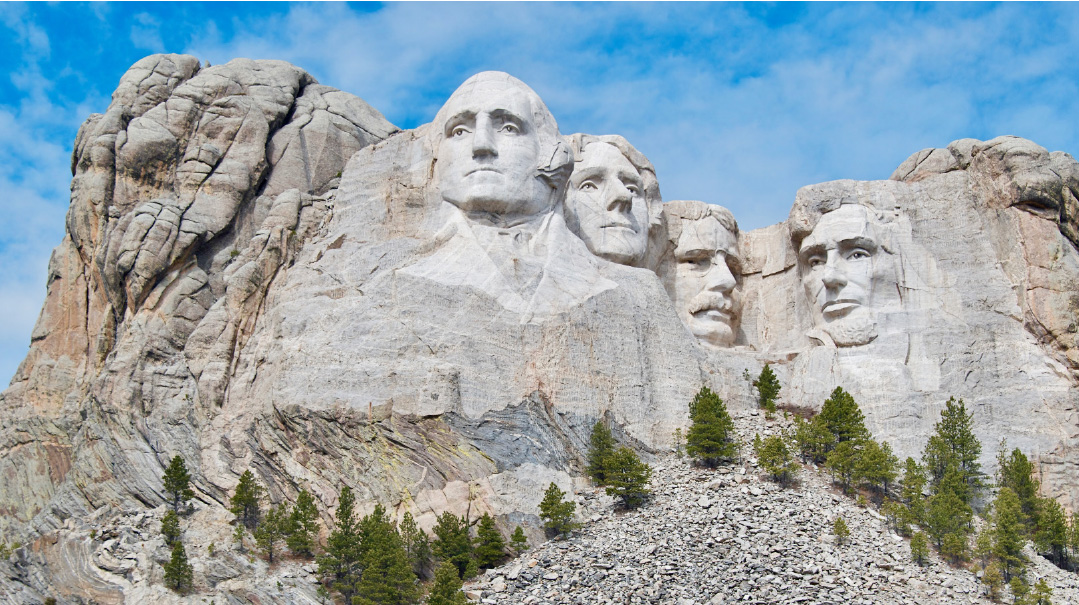The Actions of Our Avos
| December 10, 2024We as Jews do not look toward offices or positions but rather, toward actions

The days of heated arguments over who would be preferable as president are over; a candidate has been chosen. And one is left to wonder: How can we explain to our children that the man who holds the most respected office in the world is also a man whose actions and rhetoric are far from commendable?
I believe our children should be told that the very fact this question bothers them is a sign they are on the right track. Because in the secular world, honor and respect are afforded to people based on their title and stature; we as Jews, on the other hand, do not look toward offices or positions but rather, toward actions. Our actions are what make us worthy of respect.
America is a nation founded on presidents — the faces carved into Mount Rushmore represent four people who spent a period of time in the White House.
Klal Yisrael is a nation founded on actions.
The Mishnah in Pirkei Avos tells us HaKadosh Baruch Hu tested Avraham Avinu ten times, each nisayon challenging a different aspect of his life. In fact, there is a dispute among the Rishonim over which incidents in his life were included in this list, thereby bringing the final tally to more than ten. Many of these tests are related to us in parshiyos Lech Lecha and Vayeira, and some are related in the Midrash. Rav Chaim Volozhin wonders why Avraham needed to be tested time and time again. Wouldn’t fewer nisyonos have been enough for HaKadosh Baruch Hu to see that Avraham was a righteous individual who would always follow His ways?
Rav Chaim Volozhin answers, based on the concept of maaseh avos siman labanim, that every nisayon Avraham Avinu passed gave us, his descendants, the strength and ability to overcome similar challenges.
How is it that so many “ordinary” individuals have been willing, even proud, to give up their lives to avoid converting to a different religion? That came from Avraham’s willingness to be thrown into the furnace of fire by Nimrod. That resilience was passed down to his children and made it possible throughout the generations.
So many Jews have wanted to leave their families to live in Eretz Yisrael, even before the days of instant communication with relatives back home. That, too, came from Avraham Avinu’s adherence to the command of lech lecha without questioning Hashem’s reasons.
It is for this reason that HaKadosh Baruch Hu gave Avraham so many nisyonos. It was to establish those characteristics in our DNA as a nation. Hashem knew what Avraham was capable of and knew he would “pass,” and we would thereby reap the benefits of those acts of greatness for many generations to come.
The Gemara (Gittin 57b) relates the well-known story of Chanah and her seven sons. The gentile king demanded they bow before his idol, and each one refused. One by one, they were tragically taken away to be killed. Before the youngest child was taken away, she said to him, “Tell Avraham Avinu that he was willing to sacrifice one son, but I was willing to sacrifice seven.”
What was her message? Was she trying to disrespectfully boast to Avraham that she was better than he? In fact, she meant exactly the opposite. What she intended was, “Tell Avraham that because he was willing to sacrifice one child, he gave me the ability to be able to sacrifice seven. It all came from you! Look how that was passed down to me and has manifested itself sevenfold. Thank you for giving me this incredible strength.”
If we each look at the challenges we face in our lives, we will be able to find something similar in the nisyonos of Avraham Avinu. Anyone who struggles with parnassah can look to Avraham, who entered a land in the grips of a famine yet still stayed strong in his emunah. We are sometimes forced to separate from people, even family members, who can have a negative influence on us. This is similar to how Avraham sent away Hagar and Yishmael. So many Russian Jews have had their bris milah as an adults, similar to how Avraham fulfilled that mitzvah at an older age.
Chazal (Tanna d’Bei Eliyahu Zutah Rabbah 25) say that we are all obligated to ask ourselves, “When will my actions become like my forefathers, like Avraham, Yitzchak, and Yaakov?” Do Chazal really expect us to be on the level of the Avos?
The answer is that although we may never reach their level of greatness, we must take that koach that we gleaned from them and overcome our nisyonos in the ways they did. In that way, we will be emulating them.
This article should be a zechus for the refuah sheleimah of Rav Paysach Yosef ben Hinda
Rabbi Eliezer Krohn is a world-renowned posek, lecturer, and mohel. He is the rav of Bais Medrash Ahavas Torah in Passaic, New Jersey, and rabbinic advisor for PUAH.
(Originally featured in Mishpacha, Issue 1040)
Oops! We could not locate your form.







